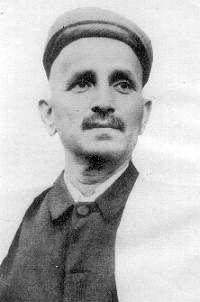Vishnu Narayan Bhatkhande
| Vishnu Narayan Bhatkhande | |
|---|---|
 |
|
| Background information | |
| Born |
August 10, 1860 Walkeshwar, Mumbai, India |
| Origin | India |
| Died | September 19, 1936 (aged 76) |
| Genres | |
| Years active | 1875–1935 |
Pandit Vishnu Narayan Bhatkhande (Marathi: विष्णू नारायण भातखंडे)(August 10, 1860 – September 19, 1936) was an Indian musicologist who wrote the first modern treatise on Hindustani classical music (The north Indian variety of Indian classical music), an art which had been propagated earlier for a few centuries mostly through oral traditions. During those earlier times, the art had undergone several changes, rendering the raga grammar documented in scant old texts outdated.
Ragas used to be classified into Raga (male), Ragini (female), and Putra (children). Bhatkhande reclassified them into the currently used Thaat system. He noted that several ragas did not conform to their description in ancient Sanskrit texts. He explained the ragas in an easy-to-understand language and composed several bandishes which explained the grammar of the ragas. He borrowed the idea of lakshan geet from the Carnatic music scholar Venkatamakhin.
Vishnu Narayan Bhatkhande was born in 1860 in Walkeshwar, Mumbai, Maharashtra. His father had great passion for music which motivated him to study music. At an early age he had mastered singing, veena and flute. He was educated at Elphinstone College in Mumbai and Deccan College in Pune. He graduated with a degree in Law in 1885 and joined the legal profession in 1887. Later he served a short stint as a lawyer in the High Court in Karachi.
During his college days, Bhatkhande began learning sitar playing from Vallabhdas. He later learned vocal music from Raojiba, a Dhrupad singer. He also trained in other aspects of classical music under Belbagkar, Ali Hussain Khan, and Vilayat Hussain Khan. He became a member of Gayan Uttejak Mandali, a musical circle in Mumbai, Maharashtra.
...
Wikipedia
